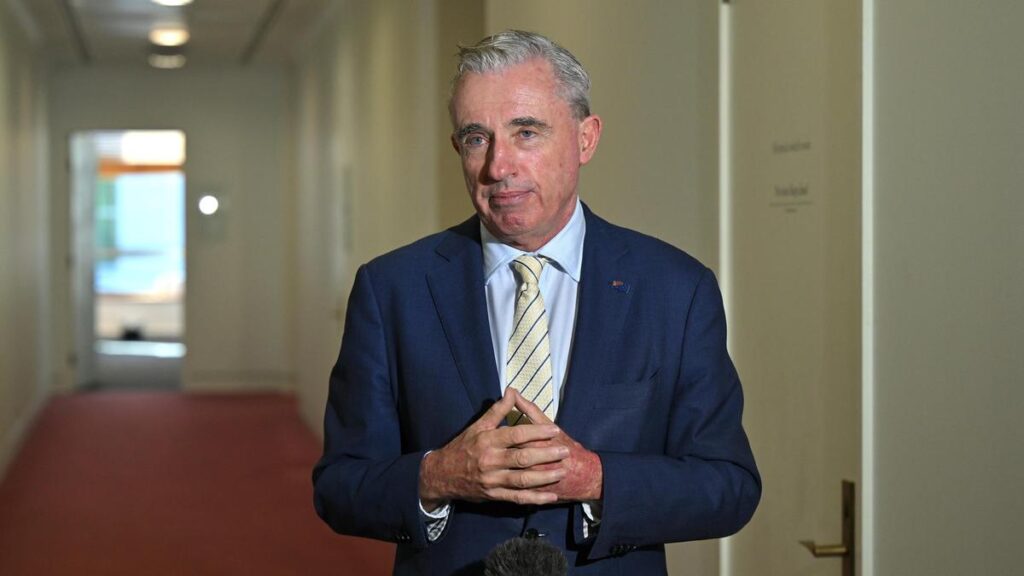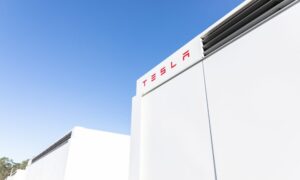
As the deadline for securing exemptions from the United States’ impending tariffs approaches, Shadow Trade Minister Kevin Hogan has accused Prime Minister Anthony Albanese of “waving a white flag.” The criticism comes amidst ongoing negotiations between the US and several countries, including the UK and Vietnam, which have successfully reached trade deals.
Prime Minister Albanese, addressing an economic forum on Friday, expressed skepticism about any changes to the tariffs by next week. “I think he’s waving a white flag and I don’t know why he’d be saying that,” Mr. Hogan remarked during an interview with Sky on Sunday. He highlighted that other countries, such as the UK, Mexico, and Canada, have managed to secure exemptions or “carve outs” from the tariffs.
International Trade Negotiations Intensify
The UK’s success in maintaining a 10 percent base tariff on its exports to the US, with preferential terms in certain sectors, stands in contrast to Australia’s current position. Australia has traditionally relied on a free trade agreement with the US to ensure tariff-free access for key exports. However, the introduction of President Trump’s 10 percent baseline tariff in April has disrupted this arrangement.
Countries that fail to secure agreements by July 9, marking the end of a 90-day negotiation pause, will face the outlined tariffs. President Trump announced on Friday that he has signed “take it or leave it” tariff letters to 12 countries, which are set to be dispatched on Monday.
Defending Diplomatic Efforts
Labor Minister Kristy McBain defended the Prime Minister’s diplomatic efforts, emphasizing the “warm and friendly” nature of his three phone calls with President Trump. “We’re working really hard with all of our trading partners to ensure that we’re getting good deals for our exporters, our primary producers, so that we can broaden our trade relationships with a range of countries,” Ms. McBain stated.
Amidst criticism, she also addressed concerns about Mr. Albanese’s focus on Australia’s relationship with China. The Prime Minister is set to travel to Beijing next weekend to meet with President Xi Jinping. Ms. McBain highlighted the government’s success in stabilizing ties with China, noting the removal of approximately $20 billion in trade impediments.
“China’s one of our biggest trading partners. We’ve got a steady relationship with China now,” she said. “We’ve done away with about $20 billion in trade impediments because we’ve had a calibrated and open communication with them over the last three years.”
Strategic Alliances and Historical Context
Mr. Hogan underscored the importance of the US alliance, emphasizing its significance not only economically but also in terms of national security. “Given the importance of that country, not just on the economic relationship we have, but the national security relationship… it should be to all Australians,” he said, referencing the ongoing US review into AUKUS.
The debate over Australia’s foreign policy strategy intensified after Prime Minister Albanese’s recent speech, which invoked the wartime leadership of John Curtin. Marking the 80th anniversary of Curtin’s death, Albanese signaled Australia’s intent to navigate its own path amid rising global uncertainties, drawing parallels to Curtin’s historic pivot towards the US over Britain.
Liberal MP Julian Leeser criticized the Prime Minister’s handling of the US relationship. “I think Mr. Albanese has really mucked up the relationship with the United States,” Leeser commented, expressing doubt about Albanese’s efforts to strengthen Australia’s position with the US.
As the deadline looms, the Australian government faces mounting pressure to secure favorable terms with the US. The outcome of these negotiations will have significant implications for Australia’s trade landscape and its broader diplomatic relations.






